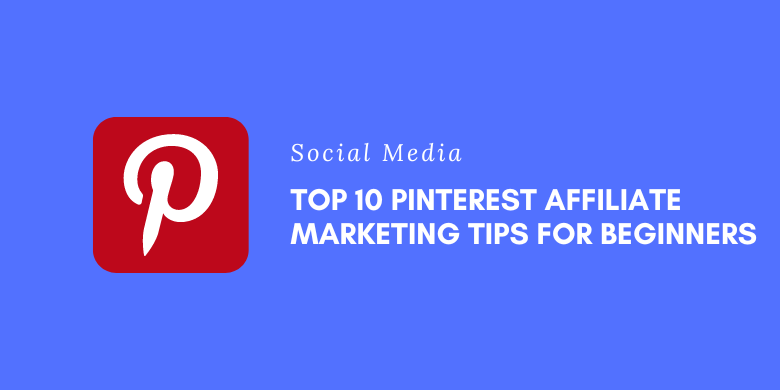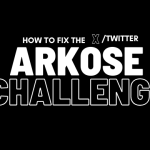Affiliate marketing is one of the most effective ways to make money online. And, Pinterest, with its 400 million active users, can help you generate a significant income through affiliate marketing. In this article, we will provide you with the top 10 Pinterest affiliate marketing tips for beginners to help you maximize your earning potential. By following these tips, you can build a successful affiliate marketing business on Pinterest and outrank your competitors.
Choose the Right Niche
Choosing the right niche is crucial for your affiliate marketing success on Pinterest. It is essential to select a niche that is in demand and has a large audience on Pinterest. Use the Pinterest search bar to find trending topics, and make sure to select a niche that interests you and aligns with your brand.
Create a Business Account
Creating a business account is the first step toward a successful affiliate marketing business on Pinterest. A business account gives you access to analytics and the ability to promote your pins. It also makes it easier for users to find your content.
Optimize Your Profile
Optimizing your profile is crucial for your success on Pinterest. Your profile should include a professional profile picture, a bio that highlights your niche and the benefits you offer, and a link to your website.
Create High-Quality Pins
Creating high-quality pins is essential for your affiliate marketing success on Pinterest. High-quality pins attract more engagement, which increases the visibility of your pins. Make sure your pins are visually appealing, use high-quality images, and include keyword-rich descriptions.
Use Keywords
Using keywords in your pins is essential for search engine optimization (SEO) on Pinterest. It helps your pins rank higher in the search results, increasing the visibility of your pins. Use relevant and high-ranking keywords in your pin descriptions and titles.
Create Boards and Pins that Resonate with Your Niche
Creating boards and pins that resonate with your niche is crucial for your affiliate marketing success on Pinterest. It is essential to create boards that align with your niche and interests your audience. Make sure to create boards with specific themes, and always create pins that are relevant to those themes.
Promote Your Pins
Promoting your pins is essential for increasing the visibility of your pins and driving traffic to your website. Use Pinterest’s paid advertising feature to promote your pins, and use relevant keywords and targeting options to reach your ideal audience.
Use Affiliate Links
Using affiliate links in your pins is essential for your affiliate marketing success on Pinterest. Always disclose your affiliate links, and use link-shortening tools to make your links more visually appealing.
Analyze Your Performance
Analyzing your performance is essential for optimizing your affiliate marketing strategy on Pinterest. Use Pinterest’s analytics feature to track your performance and adjust your strategy accordingly.
Build Relationships
Building relationships is crucial for your affiliate marketing success on Pinterest. Engage with your audience by repinning their content, responding to comments, and sending messages. Building relationships with your audience helps build trust, which can lead to more conversions.
Conclusion
Pinterest is an excellent platform for affiliate marketing, and by following these top 10 Pinterest affiliate marketing tips for beginners, you can maximize your earning potential. Remember to choose the right niche, create high-quality pins, use keywords, create boards and pins that resonate with your niche, promote your pins, use affiliate links, analyze your performance, and build relationships with your audience.
FAQs:
What is Pinterest affiliate marketing?
Pinterest affiliate marketing is a strategy in which you use Pinterest to promote affiliate products and earn a commission for any sales that result from your promotion efforts.
How do I become a Pinterest affiliate marketer?
To become a Pinterest affiliate marketer, you first need to sign up for an affiliate program. Many online retailers offer affiliate programs, so find one that fits your niche and sign up. Once you’re approved, you can start promoting the products on Pinterest.
How do I promote affiliate products on Pinterest?
To promote affiliate products on Pinterest, you need to create pins that showcase the products and link to your affiliate landing pages. You can also create boards that are related to your niche and feature affiliate products, and participate in group boards where you can share your pins with a larger audience.
How do I measure the success of my Pinterest affiliate marketing efforts?
To measure the success of your Pinterest affiliate marketing efforts, you can track the number of clicks and sales that result from your promotions. You can also monitor your engagement rates, such as the number of saves and likes on your pins, to see how well your audience is responding to your content.
Is it necessary to have a blog to do Pinterest affiliate marketing?
While having a blog can be helpful for driving traffic to your affiliate links, it is not necessary to have one to do Pinterest affiliate marketing. You can still create pins that link directly to your affiliate landing pages and promote them on Pinterest without a blog. However, having a blog can provide additional opportunities for content creation and promotion.
Pros and Cons
| Pros | Cons |
|---|---|
| High potential for reach and visibility | A highly visual platform may not be suitable for all niches |
| Targeted audience based on interests | Can be time-consuming to create and curate high-quality pins |
| Long lifespan of pins, leading to the potential for long-term traffic and sales | Can take time to build a following and see significant results |
| Ability to generate passive income through affiliate marketing | Algorithm changes and updates can impact visibility and reach |
| Free to use and can be a cost-effective marketing strategy | Over-reliance on one platform for traffic and sales can be risky |















